Making the switch from hospitality to sales may seem overwhelming at first, but both industries actually share plenty of transferable skills that can ease the transition. With experience in customer service, problem-solving, and managing expectations, hospitality professionals may already have a solid foundation to thrive and succeed in sales roles.
This article will guide you through making a smooth transition from hospitality to a sales career with practical tips, steps to take, and skills to emphasize as you go through this change.
Why Consider Sales After Hospitality?
Hospitality professionals develop strong interpersonal skills, work in high-pressure environments, and master the art of customer satisfaction. These qualities align with the needs of sales careers, where connecting with clients and understanding their needs are necessary. Sales positions can also develop additional competencies like negotiation, strategic thinking, and lead generation, all while providing room for financial growth and career advancement.
Helpful Strategies to Make the Switch Easier
#1: Understand the Transferable Skills From Hospitality
The good news is that hospitality professionals often possess highly valued skills in sales. Identifying and leveraging these skills will make positioning yourself as a strong candidate in your new field easier. Some of the transferable skills may include:
Communication
Strong communication skills are a hallmark of both hospitality and sales. In hospitality, professionals constantly interact with guests, handling inquiries, solving problems, and ensuring a pleasant experience. Similarly, sales professionals must communicate effectively with clients, understand their pain points, and propose solutions.
In both industries, communication isn’t just about talking; it’s also about listening actively and responding thoughtfully. Transitioning into sales allows hospitality professionals to leverage these communication skills in a new context, such as explaining the best features of your products or services, conducting negotiations, and closing deals.
Tip: Highlight your experience in customer interactions. Cite specific examples of how your communication skills positively impacted customer satisfaction or solved a complex issue.
Customer Service
The hospitality industry is built on excellent customer service, which is equally important in sales. Sales professionals should empathize with clients, anticipate their needs, and provide tailored solutions—much like hospitality workers who go the extra mile for guests. This focus on delivering a personalized experience is at the heart of successful sales.
While hospitality focuses on customer satisfaction through immediate service, sales emphasize customer satisfaction through long-term relationship building. Those transitioning into sales should emphasize their ability to maintain strong client relationships and provide exceptional service, as these traits directly correlate with customer retention and satisfaction in sales.
Tip: During interviews, talk about how your customer service skills helped you maintain relationships with repeat customers and how this can be applied to client retention in sales.
Adaptability
The fast-paced nature of the hospitality industry requires employees to juggle multiple tasks and easily handle unexpected situations. Similarly, sales entail quick thinking, the ability to pivot strategies, and problem-solving skills. Sales professionals adjust their approach based on client feedback, market changes, or new product offerings.
Hospitality professionals are no strangers to handling high-pressure situations, and their experience adjusting on the fly will let them excel in sales roles. Adaptability is key, whether you’re dealing with a tough negotiation or responding to an urgent client need.
Tip: Show potential employers that your experience in hospitality has equipped you to handle stressful situations and adapt to new challenges, which is a must in sales.
#2: Gaining Sales-Specific Skills
While transferable skills provide a solid foundation for making the transition from hospitality to a sales career, gaining sales-specific skills will help you stand out to potential employers. Here are some of them:
Product Knowledge
One key difference between hospitality and sales is the need for in-depth product knowledge. In sales, you’ll need to understand the products or services you’re selling inside and out to communicate their value to potential clients effectively. Depending on your chosen industry, this might mean learning about technology, financial products, or consumer goods.
Tip: Learn about the industry and products associated with the sales role you want. You can do this by attending training sessions, reading industry blogs, and keeping up with market trends.
Sales Techniques
Sales require an understanding of various selling techniques, such as consultative selling, upselling, and cross-selling. These strategies help sales professionals not only meet customer needs but also exceed them by offering additional value. Learning to close deals and negotiate effectively is essential for anyone entering sales.
Tip: Consider taking an online course or workshop on sales techniques. Take time to familiarize yourself with popular sales methodologies like SPIN selling or the Challenger Sale, and practice using these techniques in real-life scenarios.
CRM Software Proficiency
Sales professionals rely heavily on Customer Relationship Management (CRM) software to track leads, manage customer interactions, and analyze sales data. CRM tools such as Salesforce, HubSpot, or Zoho are integral to modern sales processes, helping streamline communication and efficiently manage client relationships.
Tip: Get hands-on experience with CRM software. Many platforms offer free trials or affordable certifications that can give you a competitive edge when applying for sales roles.
#4: Build a Strong Personal Brand
The way you present yourself online and offline can impact your career prospects. Rather than downplaying your experience in hospitality, showcase how it makes you a valuable candidate for sales roles. Many employers value customer service experience, and demonstrating how your background aligns with sales demands can set you apart from other candidates.
Tweak your resume and LinkedIn profile to emphasize the skills and achievements from hospitality that are relevant to sales. Consider using action-oriented language and metrics to show your impact in previous roles.
#5: Research the Sales Industry
Sales is a broad field with roles in various sectors, such as technology, healthcare, and retail. Research different types of alternative jobs for restaurant managers, including inside sales, field sales, and business development, to find a position that aligns with your interests and strengths.
Sales professionals are evaluated based on measurable outcomes, such as revenue, conversion rates, and quotas. Familiarizing yourself with common metrics will help you understand how success is measured and what is expected in your new role. This knowledge will allow you to align your efforts with team goals effectively.
#6: Utilize Your Existing Network
Believe it or not, your network from the hospitality industry can be a valuable asset. Reach out to former colleagues, customers, or vendors who may have connections in sales. Building connections with them can help you learn more about the industry and uncover job opportunities. Attend industry events, join LinkedIn groups, and reach out to people in your network who have successfully made the transition.
#7: Develop a Growth Mindset
Transitioning into a new industry requires patience and persistence. A growth mindset—believing skills can be developed through effort and learning—is invaluable for overcoming challenges. View setbacks as learning opportunities and seek feedback from supervisors and colleagues to improve continuously.
Reading books and listening to podcasts on sales can also keep you motivated and expand your knowledge. Some recommended resources include:
- “The Challenger Sale” by Matthew Dixon and Brent Adamson
- “SPIN Selling” by Neil Rackham
- “Sales Influence Podcast” with Victor Antonio
#8: Leverage Social Media
It’s no secret that social media can be a powerful tool for building your personal brand and connecting with industry influencers. Create content that reflects your interest in sales, share insights from your learning journey, and engage with thought leaders in the field. A strong online presence can help you stand out to potential employers.
Use social platforms like LinkedIn to connect with sales professionals and seek advice on industry trends, job openings, and best practices. Informational interviews with sales representatives can also offer insights into the responsibilities of the role you’re aiming for.
#9: Prepare for the Interview Process
Sales interviews often involve behavioral and situational questions designed to assess your problem-solving ability, communication skills, and cultural fit. Be prepared to discuss how your hospitality experience makes you an asset in a sales role. Use the STAR method (Situation, Task, Action, Result) to effectively structure your answers and highlight your achievements.
For instance, if asked about a challenging situation, you could explain how you resolved a guest complaint, emphasizing the steps you took to ensure customer satisfaction. This would demonstrate your ability to handle objections, a vital skill in sales.
Additionally, be ready for role-play exercises during interviews. Some companies may ask you to simulate a sales call or pitch a product to gauge your ability to engage customers.
The Bottomline
Transitioning from hospitality to sales may seem overwhelming at first, but with the right approach, it’s entirely achievable. Your communication, customer service, and problem-solving skills give you a strong foundation. By researching the sales industry, networking effectively, and developing new skills, you’ll position yourself for long-term success.
Every career change from restaurant to sales comes with challenges, but embracing continuous learning and maintaining a growth mindset will help you thrive. With determination and effort, you can make a smooth transition and build a fulfilling career in sales.
Make the Switch With Us
At QZ Solutions, we provide the tools, mentorship, and opportunities needed to help you make a seamless transition. Our team understands the unique strengths hospitality professionals bring and offers personalized training to enhance your sales acumen. Whether it’s learning sales strategies or handling your first client meetings, we’ll be with you every step of the way.
Join us at QZ Solutions and start building the sales career you’ve always wanted.


